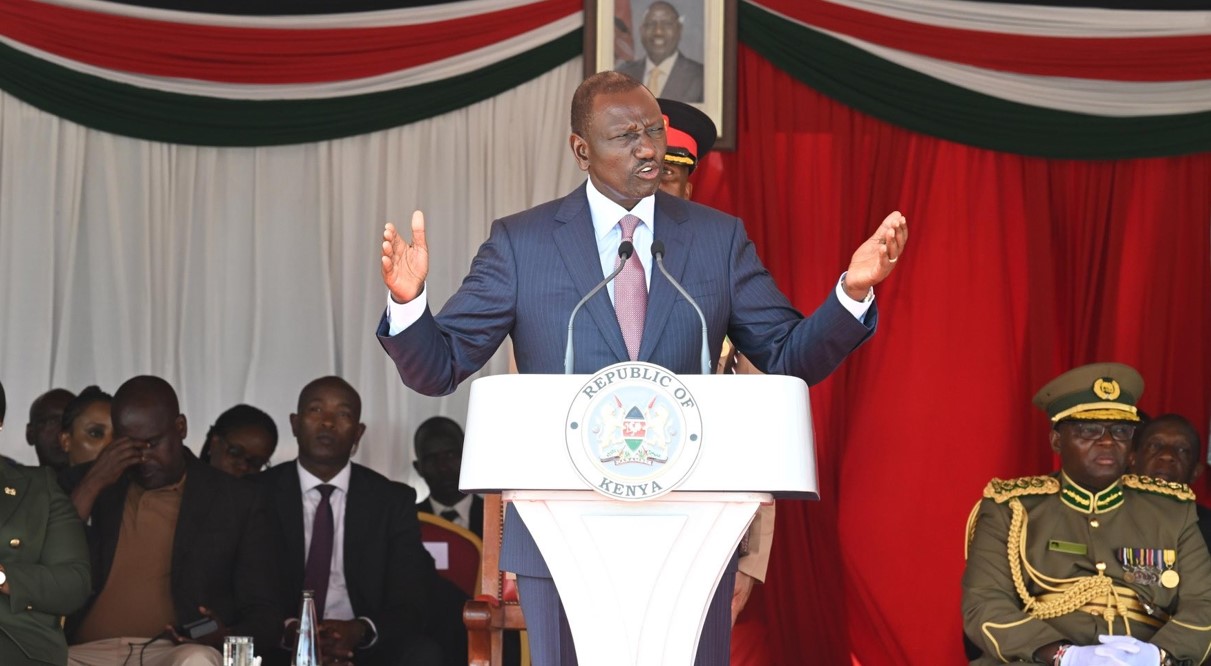AfDB expats return to Ethiopia after PM Abiy apologises

The AfDB said on Friday it was "delighted with and reassured by the strong personal leadership and firm commitment shown by Prime Minister Abiy Ahmed, which have led to the resolution of the impasse following the incident".
The African Development Bank (AfDB) says its international staff have returned to Ethiopia, a month after their unprecedented withdrawal following a breach of diplomatic protocol and the assault of two staffers by local security forces.
The office continued operating with an officer-in-charge, ensuring no impact on nationally recruited Ethiopian staff, with the bank emphasising its duty of care to local employees and their families.
More To Read
- Exclusive: Kenya in talks for fresh Sh112.8bn loan from World Bank, AfDB, says official
- AfDB announces plans for sustainability hub for Africa to foster joint green movement
- Report reveals Kenyan government borrowed Sh258 billion in 11 new loans
- AfDB’s Sh1.3 billion capital injection to support Kenya’s sectoral development
In a statement on Friday, the AfDB said its president, Akinwumi Adesina, met Ethiopian Prime Minister Abiy Ahmed in Addis Ababa at the end of last month.
It has "subsequently received formal apologies from the Prime Minister on behalf of the Government of Ethiopia, with firm assurances of the security and safety of the bank and its personnel", the Abidjan-based bank said.
On December 20, the AfDB said two of its Addis Ababa-based staff had been "unlawfully arrested, physically assaulted, and detained for hours without charge or any official explanation" at the end of October.
The bank did not identify the two victims but two diplomatic sources in Addis Ababa previously confirmed reports that Ethiopia director Abdul Kamara was one of them and that he had since left the country.
On Friday, the AfDB said it was "delighted with and reassured by the strong personal leadership and firm commitment shown by Abiy, which have led to the resolution of the impasse following the incident".
Following the incident on October 31, 2023, the Bank promptly intervented and the staff were released but concerns persisted.
At the time, Adesina stressed the lack of a satisfactory resolution and the absence of shared reports or investigations from the Ethiopian government. The Bank requested a transparent investigation and, as a precautionary measure, shifted its international staff to remote-work outside Ethiopia, with Adesina highlighting commitment to personnel safety and the protection of their rights.
The incident's impact on the Bank's operations and future presence in Ethiopia was contingent on a thorough resolution and public disclosure of measures taken against those responsible.
“While the Bank appreciates the excellent relations it has with Ethiopia until this egregious incident, its continued operations and future presence in the country could be negatively affected if the incident is not fully resolved," Adesina had said. He added, however, that the Bank remained committed to supporting the country’s socioeconomic development.
The bank was created in 1964 to finance development efforts in Africa. Apart from countries of the African Union, its membership includes about 20 non-African nations. Its investments in Ethiopia come to $1.24 billion covering 22 projects.
Story by AFP. Additional reporting by Gelle Dheere.
Top Tags of the Day
Trending





















